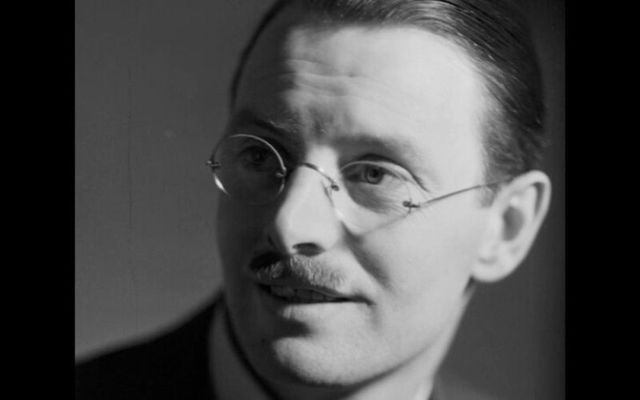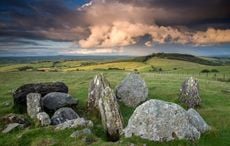Editor's note: In May 2022 our sister publication, Ireland of the Welcomes, celebrated its 70th anniversary. To mark the occasion, we dipped into our decades of archives and found incredible articles like this and others written by famous Irish figures such as Brendan Behan, Patrick Kavanagh, and Paul Henry. This passage is by iconic 20th-century Irish writer Seán Ó Faoláin.
When I was a boy every ship entering the Port of Cork from the broad Atlantic was greeted by a vast placard in black and white fixed to the quay walls. It said dead SLOW. And the humorous philosophers of Cork agreed that it was dead right!
It is no trouble to find other pockets of time in Europe where life also revolves at a restful tempo — remote corners of Provence, the lonely, sunburnt uplands of Sicily, lost villages in the Dolomites — happy places where life seems barely to drift along like the smoke of your pipe on an airless day; where there is no telephone to jangle in your ears, where the most recent newspaper is three days old and the current copy of the Figaro, or Oggi, or Time, or Punch is one left behind by some forgotten traveler who passed that way in 1949. But nowhere except in Ireland will you find a whole people so aristocratically indifferent to the hurry and scurry of modern life.
Here, however, we must make a very important distinction. If an Irishman finds that you are engaged on some enterprise of real importance — such as trying to come to Ireland for a holiday — he will work like a stopwatch to give you instant service. An Irishman is your devoted and efficient slave if you want to fish, play golf, go to the races, hunt, eat, drink or merely want to engage in a long and leisurely conversation on any subject whatsoever, from roulette to Rembrandt, from Irish setters to India.
But should his ancient wisdom warn him that you are fussing about something of no earthly importance, he will produce from his pocket a venerable chronometer that stopped somewhere about the time of Louis XIV, tap it gravely, look you solemnly in the eye, and assure you that your needs will be attended to in exactly two minutes. The next time you see him — it may be three days later — you will realize with a shock of surprise that you have meanwhile been enjoying yourself so much that you can't remember from Adam what it was that you had so urgently wanted him to do. Being a perfect gentleman, he will never mention the matter to you.
One can see the cream of Ireland's bloodstock at the Dublin Horse Show (August 2–6). Each year over 100,000 visitors are attracted to this, the principal sporting event of the Irish year.
Ireland has a strange power to make all our holidays seem like childhood vacations when no hour is vacant but the day never seems to end – whether it is because of the lively Atlantic air that redoubles one's energy or our vivid western light that prolongs every evening.
In June, the sky is still bright an hour before midnight, and if there is a full moon the fisherman will leave the lake only when the blanched tips of the trees suddenly surprise him by the darkness of their trunks. With the climber, the golfer, the yachtsman, the wandering stroller, he then becomes suddenly aware of a ravening appetite for a dinner of lobster, or fresh salmon, or the fillet steak that, as George Moore once said, has been carved from the beast with the loving art of a Phidias, or the trout curled at the bottom of his basket, to be followed, he may decide, by Gaelic Coffee—cream-topped, laced with Irish whiskey—to prepare hinı delightfully relaxed, magically rejuvenated, for a night of gossip or general jollification.
But the hotels provide for all of us, lazy or energetic, absent-minded as sportsmen or imperiously demanding as children — especially those small, intimate, inexpensive places that have been conditioned by generations of holidaymakers of every sort, size, and description. In plain, honest language nothing matters a tinker's damn to your Irish host during your Irish summer except your peculiar and personal convenience — and, of course, such questions as whether the fish are rising, or whether Michael or Paddy should get the hay in next week or the week after.

Are you planning a vacation in Ireland? Looking for advice or want to share some great memories? Join our Irish travel Facebook group.
It may take the traveler a few days to realize that everything that is appealing about Ireland and the Irish comes and goes from this wisely casual attitude to time and mutability. For while Ireland is one of the last of the really old and unspoiled lands of the world, we have also successfully managed to make all the essential outward adjustments that a tourist might expect to find only in a modern, highly industrialized country; rural electrification, punctual trains, up-to-the-minute air services, hospitable hotels, every possible facility for every possible kind of sportsman – above all, for young people and children; it is the ideal country for family holidays, and the motorist rejoices to find good roads that are never crowded, often empty for miles, and without a single advertisement for canned-food, cough-lozenges or liver-pills.
But one of the greatest of Ireland's casual pleasures is the divertingly complex nature of her people. You will find them full of friendliness; always courteously and flatteringly curious about 'the stranger'; always ready for ‘a bit of a talk”; eager for discussion, both pointed and pointless; at one moment all patience and resignation, at the next moment erupting into wild enthusiasm and reckless gaiety. They have an almost pagan admiration for every form of athletic skill or natural prowess; and, yet, their delicate sensibility to the nearness of the other world glows constantly beneath the surface of their lives, like the peat-ashes on their hearths that may be smoored but will kindle at a breath. And for all that, they are infinitely skeptical, and their humor is very close to mordant wit, and whether to count them as a romantic or a realistic race is one of those problems that nobody will ever solve. It is all part of an art that you don't have to pursue through the corridors of museums and galleries with your finger on the guidebook and a crick in your neck, but which you meet casually in every tavern, field, and cottage on the open road. You meet it in the football field, in the handball alley, at a Hurling Final in Dublin, in the wake of the hunt, and most vividly at a Point-to-Point, at a wake or a wedding.
It costs you nothing. . And this is equally true of every part of the country: whether you happen to be wandering along the Shannon shore looking for Romanesque doorways or rowing across to island hermitages so deep in the pasture that the cows can hardly keep their eyes open among buttercups as big as sunflowers; or leaning over a gate talking to a farmer by one of those little, reedy lakes of Leitrim or Sligo that are eyelashed by sleep; or dropping an occasional word with your gillie while you are fixing a fly by some mountain river in Kerry or Connemara where there isn't a sound but the run of the water or the humming of bees in flower heavy islets; or sailing within sight of the rolling drums of the Wicklow hills, or dodging in and out among the hundred islands of the Atlantic shore. Even if you are doing nothing at all but idling an hour away among the gracious Georgian squares of Dublin or among the old, crooked streets of Galway, you are among the most sociable people in the world who, simply by being themselves, create about you that sort of indulgent and friendly atmosphere in which your world-tautened muscles gradually grow relaxed and untensed, and you feel at your mellow ease to the very depths of your being.
You have not yet tried an Irish holiday? Then – grow young along with us; the best is yet to come...
* Seán Ó Faoláin was one of the most influential figures in 20th-century Irish culture. A short-story writer of international repute, he was also a leading commentator and critic.




Comments